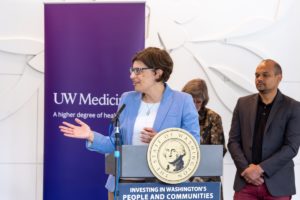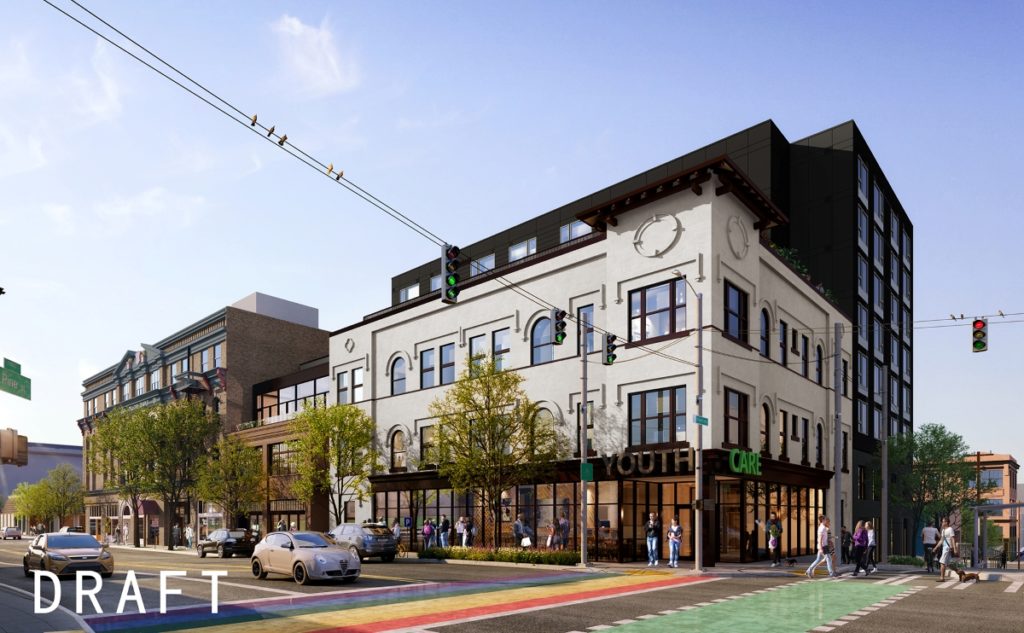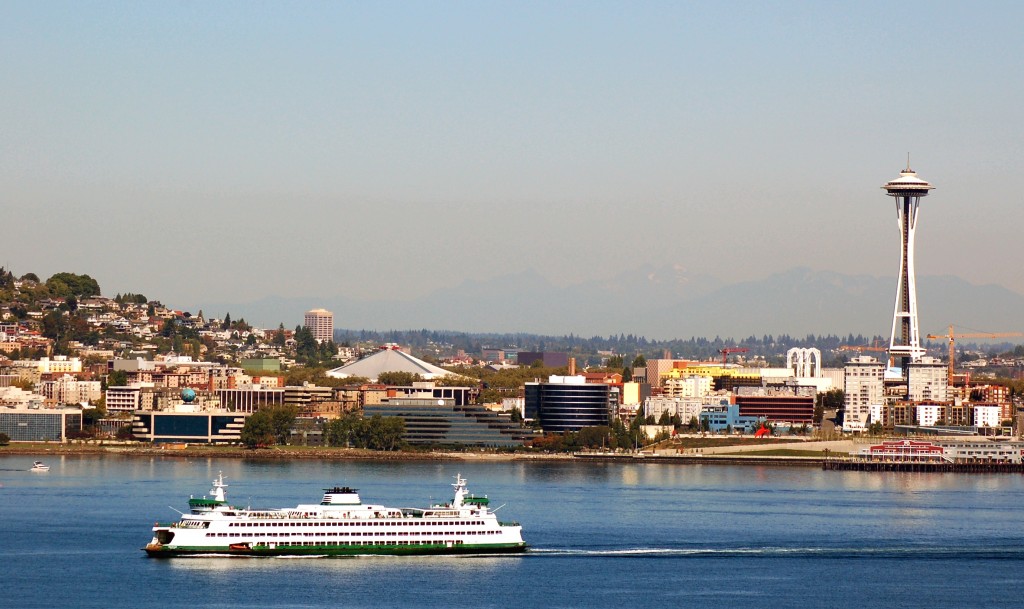In my previous newsletter, I shared some of this year’s policy successes which only tells part of the story. As Vice Chair of the Appropriations Committee, I work to help craft our State’s operating budgets. Below are some of the highlights of our Operating Budget, as well as projects I advocated for in the Capital and Transportation Budgets.
I appreciate all the feedback you have sent me this year and I hope you’ll continue to share your thoughts, priorities, ideas, and where you see the need for improvement. Please email me at Nicole.Macri@leg.wa.gov – I look forward to hearing from you.
Operating Budget investments
K-12 stabilization: addressing urgent needs
With declining enrollment and inflated costs straining their budgets, school districts need help. In the Supplemental Operating Budget, we allocated $335 million to schools with a $26 million increase for special education, $44 million for materials, supplies, and operating costs, $72 million for paraeducators, and $45 million to address additional costs for our free school meals program.
Housing and homelessness
Seattle is experiencing an acute housing emergency. We all recognize the need to invest in our communities to get people into homes and prevent people on the edge from losing theirs. While the rent stabilization bill did not pass, we did make significant investments in the budget. We invested $230 million in housing and homelessness funds, with $34 million to support local housing services, $25 million for existing local housing programs to backfill the document recording fee, and $19 million for programs housing vulnerable populations, supporting tenants’ rights, and aiding homeownership.
Preventing and responding to drug overdoses

We have seen the devastating impacts of substance use disorder, most recently fentanyl, and accidental drug misuse in our communities. That pain is felt by us all, but the harm of active addiction falls most on the people who are living with substance use disorder every day. Confronting this epidemic will save lives, and this year the Operating Budget includes an unprecedented effort to get people treatment. We invested $215 million for opioid use disorder treatment and prevention including: medication for opioid use disorder for incarcerated individuals, along with a rapid methadone induction pilot program, naloxone in libraries, colleges, and high schools, mobile opioid treatment services and public awareness and education specifically tailored to young people.
Clean energy investments
Because of funding from the Climate Commitment Act (CCA), we’ve been able to make significant investments in climate infrastructure. With $335 million in climate, clean energy, and natural resource funding, this year’s Supplemental Operating Budget pays for a new $150 million Clean Energy Credit program administered by the Department of Commerce that will provide credits on utility bills for households that meet certain income criteria. In South King County, CCA funding is expanding our air quality monitoring and funds mitigation strategies to help reduce pollution in an area of our county that is most burdened.
Supporting new arrivals to our region
We provided $36 million in support for newly arriving immigrants, asylum seekers, and refugees to address basic needs, employment and training, health care, and housing supports.
 Supporting small businesses and economic development
Supporting small businesses and economic development
Small businesses and economic development programs will see a boost with $13 million for supports such as technical assistance and capital building opportunities, and expanded broadband access and digital equity and literacy programs are funded with $8 million.
Capital Budget: statewide and local priorities
Our Capital Budget helps fund the physical costs of projects across the state such as land acquisition or construction costs.
The projects in our district that received funding for the 2024 Supplemental Budget include:
- $1 million to help YouthCare create a Workforce Development Center to provide employment and education programs to youth experiencing homelessness;
- $400,000 for the Seattle Aquarium Ocean Pavilion;
- $300,000 for Uplift Northwest to help start the remodel of their headquarters with design, engineering, and permitting funding;
- $300,000 so that FareStart can reopen their social enterprise businesses that were shut down during the pandemic, helping restart their funding streams to pay for their on-the-job training and employment programs;
- $250,000 to replace the Sea Scout dock at Waterway 18, located in Portage Bay;
- $200,000 for Benaroya Hall;
- $100,000 for Gage Academy of Art to relocate to a more accessible and purpose-built facility on Westlake Avenue; and,
- $80,000 to expand Country Doctor oral healthcare services at Meany Middle School to serve more patients and reduce wait time.

This year’s capital budget appropriates $127 million into the Housing Trust Fund, a primary source of state funding for affordable housing projects. The funds will go towards construction or acquisition of nearly 2,000 more homes and builds on the record $400 million investment made last year.
I led on establishing $55 million in Multifamily Building Efficiency Grants to ensure our low-income housing complies with the Clean Building Act by 2030. These grants will help housing built with Housing Trust Fund dollars make energy efficiency improvements such as window replacements, heat pumps and other high-efficiency systems.
I worked to secure funding to design and eventually build a permanent tribute on the capitol campus to former 43rd district Senator Cal Anderson. The 43rd district has the distinction of being served by an openly LGBTQ person longer than any other seat in the world, and I am honored to serve in Cal Anderson’s former seat. The first openly gay state elected official and a decorated veteran who served in Vietnam, Cal served in the legislature from 1987 to his death in 1995, first in the House and then the Senate. He worked tirelessly to extend our state civil rights law to include LGBTQ people, and was a champion for low-income housing.
Transportation projects and Climate Commitment Act investments
Climate Commitment Act funding transportation
Climate Commitment Act funding accounts for about $339 million in spending for this year’s Transportation Budget, including $40 million to expand zero emission vehicle infrastructure, such as EV charging stations, $207 million for state and local ferry vessels and terminal electrification, including hybrid electric vessel construction and conversions, and $30 million in green transit projects and grant programs.
SR-520 project updates
Increased costs stemming from material cost and availability, competition for projects, inflation and labor shortages are making megaprojects like SR 520 more expensive to complete. To keep the project moving forward, this year’s budget provides an additional $78 million and over the next few years will increase funding by $770 million. The Department of Transportation will also apply for a sales tax deferral on $140 million worth of materials to help address those rising costs.
SR-520 Montlake signs
Many of you contacted me about your concerns with the Montlake Sign Bridges that were erected in September, and I was grateful to join in discussion with neighbors and WSDOT to find better options. WSDOT worked with community members to create a modified signage plan that better balances WSDOT’s needs with community concerns. The modified sign solution was presented to the Legislature’s transportation budget teams, but unfortunately, the project did not receive dedicated funding. However, I am working with the Chairs of the Transportation Committees, WSDOT, and the Governor’s office to ensure that WSDOT uses a small portion of funds appropriated for the SR-520 project to pay for the modified signs.
Investing in our ferry system
An additional $196 million from the Climate Commitment Act goes directly toward efforts to build new hybrid electric ferries and projects related to strengthening Washington’s existing fleet. The bulk of that money goes toward conversions for all five new hybrid electric vessels and charging infrastructure, with completion of half of those ready in approximately 2027 or 2028. We also prioritize the workforce needs of the ferry system, with $16.5 million to hire additional crew, as well as funding for dispatch and service planning staff. The budget finances expanded passenger service in King and Kitsap counties, and increased training opportunities to address workforce shortages.
Details about the State’s Operating, Capital and Transportation Budgets are available at fiscal.wa.gov.

